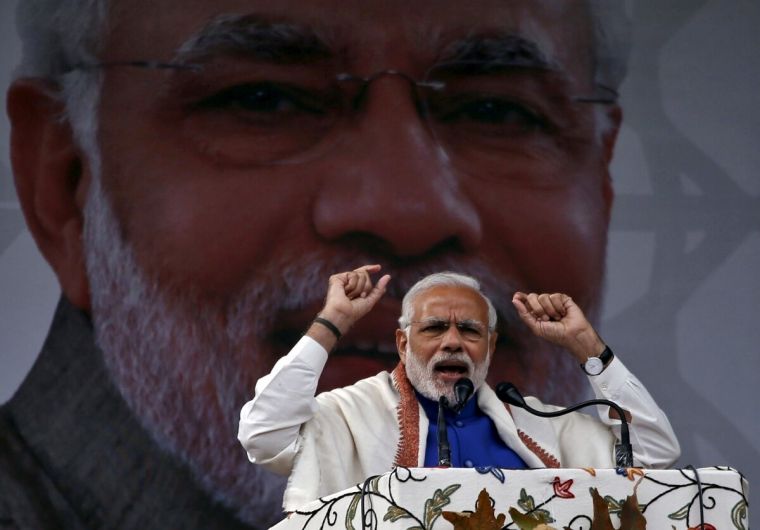Prime Minister Modi to visit the UK amid rise of religious intolerence and extremism in India
India's Prime Minister will arrive in London this week amid a wave of protests that his Hindu nationalist party has created "an atmosphere of religious intolerance and impunity."
Narendra Modi, the first Indian premier to visit the UK in over a decade, has been in power since May 2014. During his visit between 12-14 November he will have lunch with the Queen and address a joint session at Parliament with David Cameron.
The highlight of his trip will be his rally at Wembley Stadium where 60,000 adoring fans are expected to give the Indian leader a rapturous welcome. Among all the pomp and ceremony of a pseudo-state visit, up to £10 billion worth of deals are expected to signed over the course of his stay.

The visit is not without controversy. David Cameron has been urged to use it as an opportunity to highlight the marked increase in attacks on religious minorities since Modi's Bharatiya Janata Party (BJP) came to power.
Christian Solidarity Worldwide (CSW), a religious freedom charity, says there have been more than 600 cases of violence against religious minorities between may 2014 and May 2015 and an estimated 43 deaths.
"An atmosphere of religious intolerance and impunity is further stoked by recent mob hysteria over beef consumption," the charity said in a statement. CSW also point out the "pervasive discrimination" and "systematic attacks" against members of the Dalit community, considered "untouchables" in the caste system. Many Dalits are also Christians.
The BJP has a history of religious extremism and its rise to political power has coincided with a rise in Hindu nationalism and Rashtriya Swayamsevak Sangh (RSS), the ideological Hindu wing of the BJP. Last week the RSS mobilised its members to control "unnatural growth of the Christian population in many districts of the country," according to Fides.
"Demographic imbalance, caused by the increase of religious minorities in particular in border areas, may threaten the unity, integrity and identity of the country," it said in a statement.
India's Christians, and other minorities including Muslims, fear the group's power will give rise to further religious hatred.
"India's success as the world's largest democracy cannot be measured in purely economic terms without reference to its rights record," said CSW's chief executive Mervyn Thomas. "The UK's relationship with India should not focus on trade to the detriment of the enduring values which we hold dear.
"The UK must be vocal in demonstrating that trade does not trump human rights and democratic ideals."











